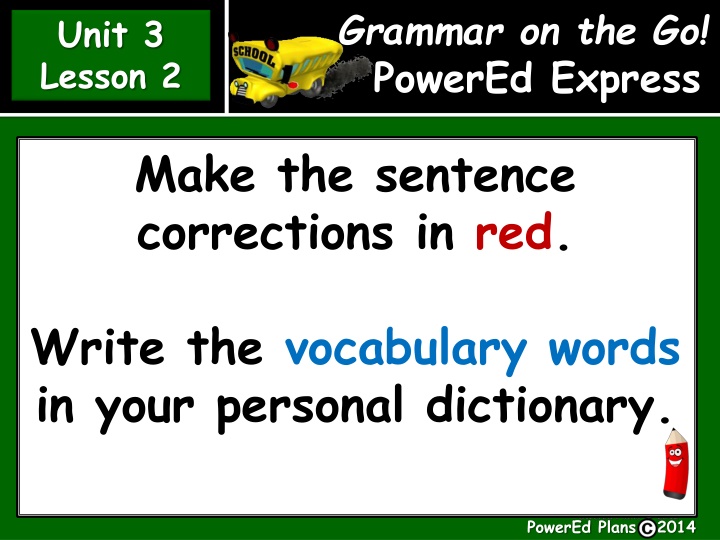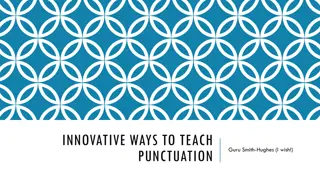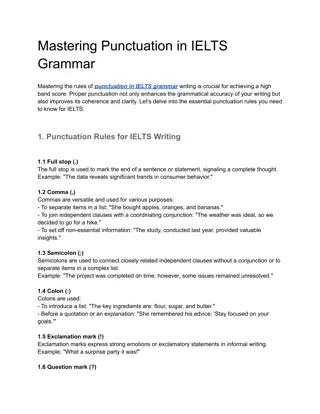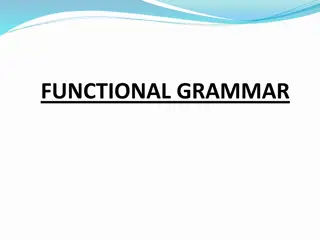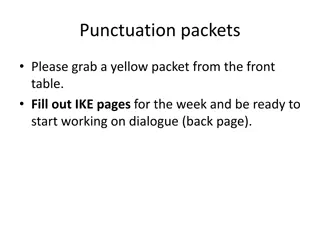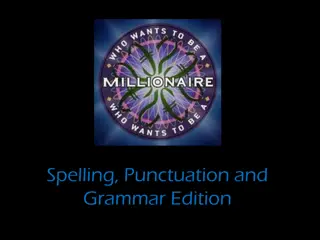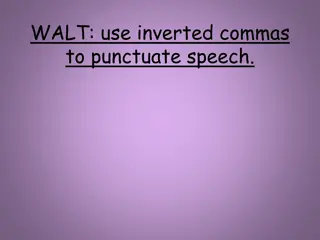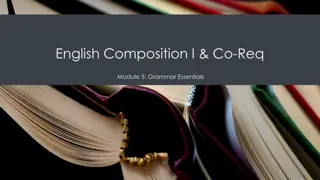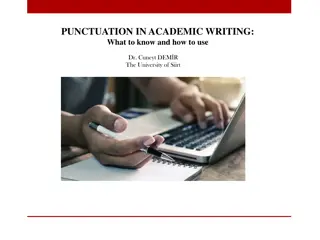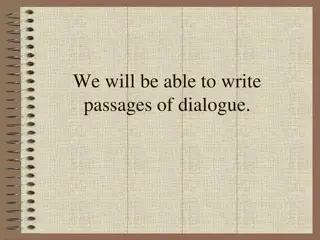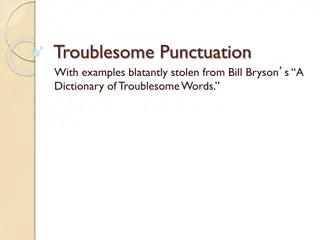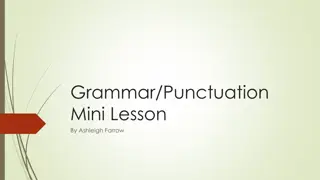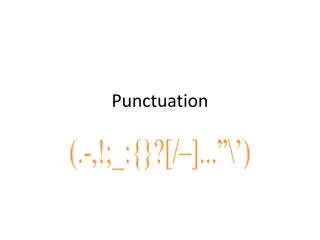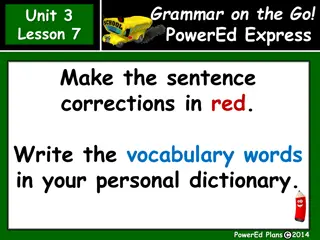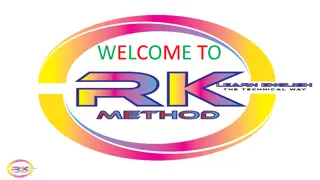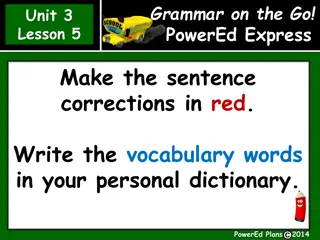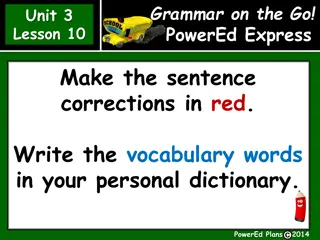Grammar Corrections and Punctuation in Dialogue Usage
Correcting sentence errors by identifying and rectifying punctuation and grammar mistakes in dialogue. Emphasizing the use of quotation marks, commas in direct addresses, and paragraph formatting in a conversational context. Providing practical examples and guidance for improving written communication skills.
Download Presentation

Please find below an Image/Link to download the presentation.
The content on the website is provided AS IS for your information and personal use only. It may not be sold, licensed, or shared on other websites without obtaining consent from the author.If you encounter any issues during the download, it is possible that the publisher has removed the file from their server.
You are allowed to download the files provided on this website for personal or commercial use, subject to the condition that they are used lawfully. All files are the property of their respective owners.
The content on the website is provided AS IS for your information and personal use only. It may not be sold, licensed, or shared on other websites without obtaining consent from the author.
E N D
Presentation Transcript
Grammar on the Go! PowerEd Express Unit 3 Lesson 2 Make the sentence corrections in red. Write the vocabulary words in your personal dictionary. PowerEd Plans 2014
Grammar on the Go! PowerEd Express Unit 3-2 Sentence would you like a snack now sweetie she pouring a boiling spaghetti over a makeshift strainer she set up over the kitchen sink queried while of pot Type of Sentence(s) Declarative, Imperative, Interrogative, Exclamatory PowerEd Plans 2014
Grammar on the Go! PowerEd Express Punctuation in Dialogue Unit 3-2 Corrections New Paragraph Capitalization Would you like a snack now, , Sweetie? ? she queried while pouring a boiling pot of spaghetti makeshift strainer she set up over the kitchen sink. . Direct Address over a End Punctuation Interrogative PowerEd Plans 2014
Grammar on the Go! PowerEd Express Paragraph Begin a new paragraph when starting new dialogue.. Indent the first line of the new paragraph. Unit 3-2 Paragraph Would you like a snack now, Sweetie? she queried while pouring a boiling pot of spaghetti over a makeshift strainer she set up over the kitchen sink. PowerEd Plans 2014
Grammar on the Go! PowerEd Express Unit 3-2 Punctuation Quote/Dialogue Punctuation Quote/Dialogue Use of Quotation Marks at the beginning and end of a direct quotation or dialogue. Remember, the punctuation goes to the LEFT of the quotation marks. Would Sweetie? ? she queried while pouring a boiling pot of spaghetti over a makeshift strainer she set up over the kitchen sink. you like a snack now, PowerEd Plans 2014
Grammar on the Go! PowerEd Express Unit 3-2 Comma Comma in Direct Address Always use a comma when directly addressing someone/something, regardless of whether the direct address is at the beginning or end of the sentence. Ladies and gentlemen, , may I have your attention? It was a pleasure to meet you, ,Sir. If the direct address is in the middle of a sentence, use a pair of commas to set off the direct address. Thank you, , students, , for remembering to use correct English. Would Sweetie? she queried while pouring a boiling pot of spaghetti over a makeshift strainer she set up over the kitchen sink. you like a snack now, , PowerEd Plans 2014
Grammar on the Go! PowerEd Express Capitalization Writing a word with its first letter as a capital letter (upper-case letter) and the remaining letters in lower case. Unit 3-2 Capitalization The first word of every sentence. Capitalize nick names when they are used in place of a name. Would Sweetie? she queried while pouring a boiling pot of spaghetti over a makeshift strainer she set up over the kitchen sink. you like a snack now, PowerEd Plans 2014
Grammar on the Go! PowerEd Express Unit 3-2 End Punctuation End Punctuation A period is a full stop. It marks the end of a sentence. It marks the end of an idea or a thought. It marks the end of an action. ? ? A question mark is, naturally, a mark which shows the sentence is a question. A question mark is required at the end of an interrogative sentence. ! Exclamation marks are used in exclamatory sentences, and sometimes in imperative sentences. . . Would Sweetie? she queried while pouring a boiling pot of spaghetti over a makeshift strainer she set up over the kitchen sink. . you like a snack now, PowerEd Plans 2014
Grammar on the Go! PowerEd Express Unit 3-2 Interrogative Sentence Interrogative Sentence An interrogative sentence is a type of sentence which usually asks a question and use a question mark (? ?). Would Sweetie? ? she queried while pouring a boiling pot of spaghetti over a makeshift strainer she set up over the kitchen sink. you like a snack now, , PowerEd Plans 2014
Grammar on the Go! PowerEd Express Unit 3-2 Vocabulary makeshift Adjective serving as a temporary substitute; sufficient for the time being PowerEd Plans 2014
